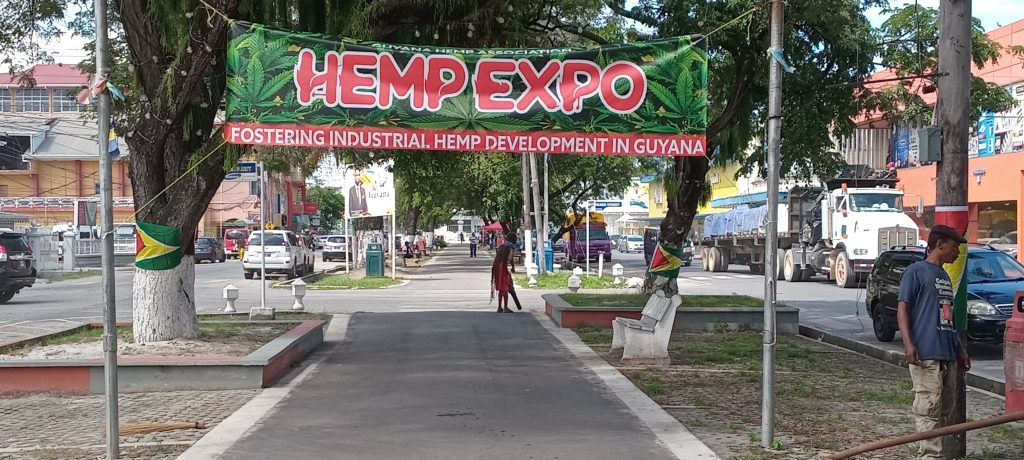Veteran Guyanese journalist Enrico Woolford has sparked debate after publicly challenging the Private Sector Commission (PSC) over its support for the Government’s recently launched Project Rescue Georgetown (also referred to as the City Revival Plan).
In a strongly worded Facebook post, Woolford accused the private sector of being a major contributor to the decline of Georgetown, not just a bystander. His remarks came shortly after the PSC issued a press release commending President Irfaan Ali for spearheading the initiative.
Woolford’s Response
Woolford’s criticism highlights several ways in which he believes the private sector has failed Georgetown:
-
Lack of environmental management systems around their businesses.
-
No educational assistance for solid waste disposal.
-
No involvement in civic education to shape public attitudes and behaviours.
-
No assistance to heritage institutions such as the National Trust or Heritage Society.
-
No establishment of Business Improvement Districts (BIDs) to manage and upgrade key commercial areas.
-
Businesses are quick to seek amnesty at City Hall but slow to invest in long-term solutions.
He summed up his frustration bluntly:
“The Private Sector is a big part of the problem. Not only in the City, across the country. Except for a few companies, every single last one of you contributed to the decline.”
The PSC Press Release
In contrast, the PSC’s official statement paints Project Rescue Georgetown as a transformative moment:
“The Private Sector Commission (PSC) extends its highest commendation to His Excellency, President Dr. Irfaan Ali, on the bold and visionary launch of Project Rescue Georgetown. This initiative represents a critical intervention to restore dignity to our capital city and position Georgetown as a modern, vibrant, and sustainable hub for business, culture, and national pride.”
The PSC argues that decades of neglect and chronic mismanagement left Georgetown in crisis: clogged drains, garbage-strewn streets, broken markets, and decaying infrastructure. It pledges its partnership to support the revival plan, noting that a clean and modern capital is critical for investor confidence and business competitiveness.
Full release: PSC commends Project Rescue Georgetown.

What Project Rescue Georgetown Promises
According to reports from Guyana Times, Kaieteur News, and the Department of Public Information (DPI), the plan focuses on:
-
Sanitation and waste management improvements.
-
Drainage and flood resilience through rehabilitation of canals.
-
Restoration of heritage landmarks, including iconic buildings.
-
Upgrading of markets, roads, and vending zones to improve commerce.
-
Urban beautification: parks, boulevards, landscaping.
-
Public education campaigns to change citizen attitudes toward waste and civic responsibility.
-
Alignment with Guyana’s Low Carbon Development Strategy 2030.
 Where Woolford’s Concerns Fit
Where Woolford’s Concerns Fit
A cross-check of Woolford’s criticisms against the plan shows some overlap but also key gaps:
| Woolford’s Concern | Is It in the Plan? | Notes |
|---|---|---|
| Environmental management systems for businesses | No explicit requirement | Plan covers waste and sanitation, but no obligations for businesses to adopt EMS. |
| Educational assistance for waste disposal | Partially | Plan includes public education campaigns, but no clear role for business in funding/leading them. |
| Civic education beyond waste | Partially | Engagement of citizens mentioned, but not business-led civic education. |
| Support for heritage institutions | Yes (partly) | Heritage restoration is in the plan, but mostly government-driven; PSC support not specified. |
| Business Improvement Districts (BIDs) | No | No mention of BIDs or similar collective business-led responsibility frameworks. |
| Private sector accountability vs. amnesty | No clarity | Plan stresses partnership, but no enforcement or accountability mechanisms for businesses. |

Analysis
While the Project Rescue Georgetown initiative acknowledges many of the symptoms Woolford highlights—waste, poor drainage, deteriorating heritage sites, and lack of civic pride—it does not yet clearly define how the private sector must share responsibility.
The PSC’s release emphasises support and commendation, but Woolford argues that without enforceable standards, structured partnerships, or contributions, businesses will continue to benefit from public spending without addressing their own impact.
Ites This
The launch of Project Rescue Georgetown is a positive step toward restoring the “Garden City of the Caribbean.” But Woolford’s intervention is a reminder that real transformation requires more than government funding.



